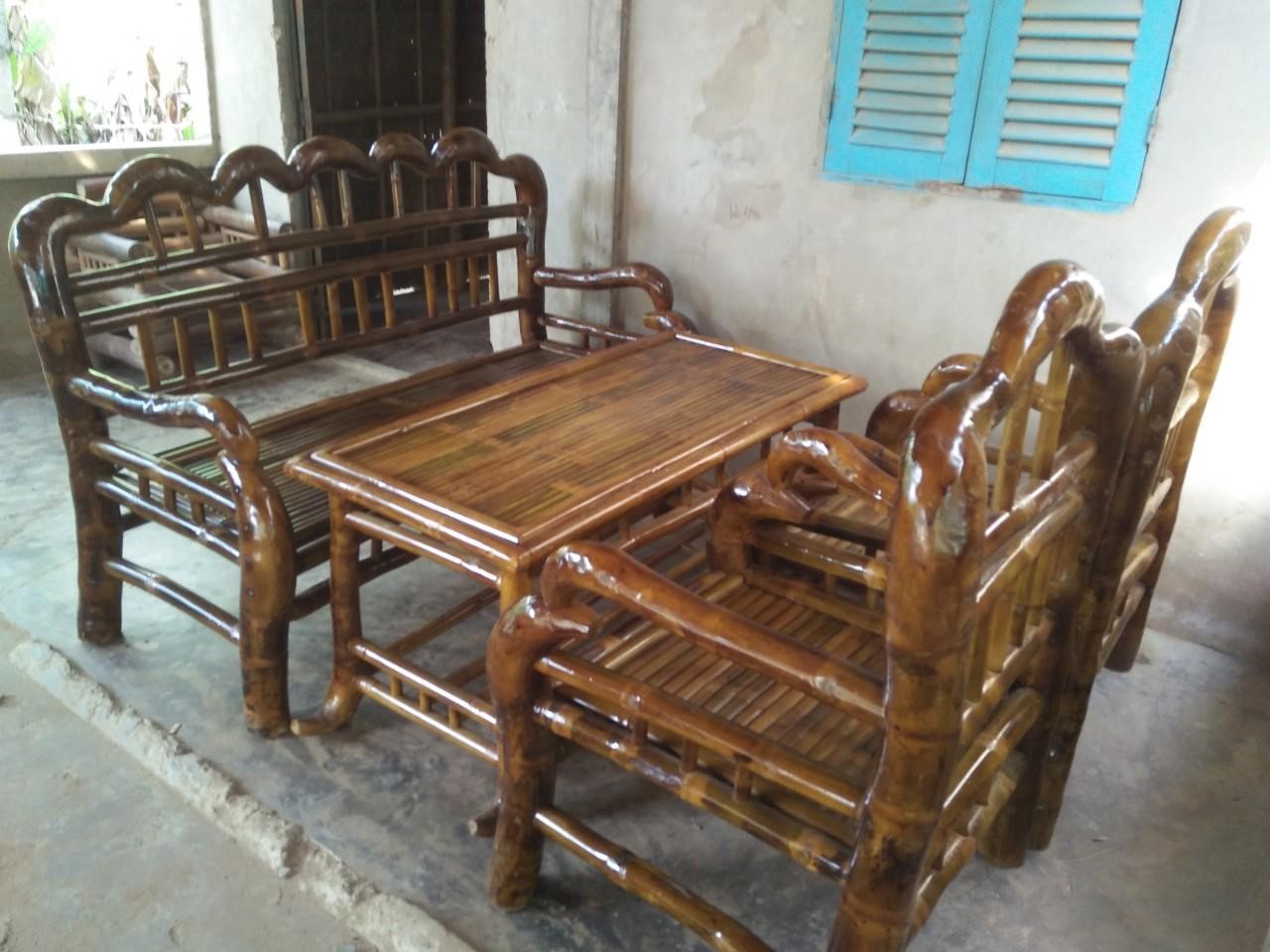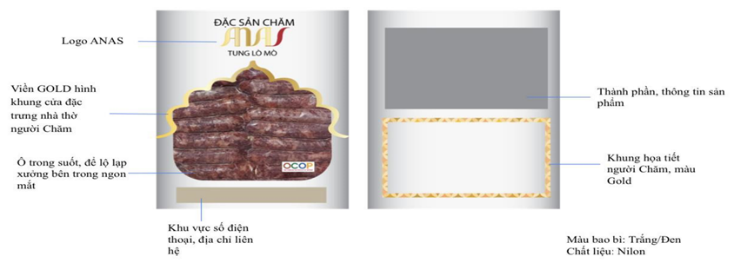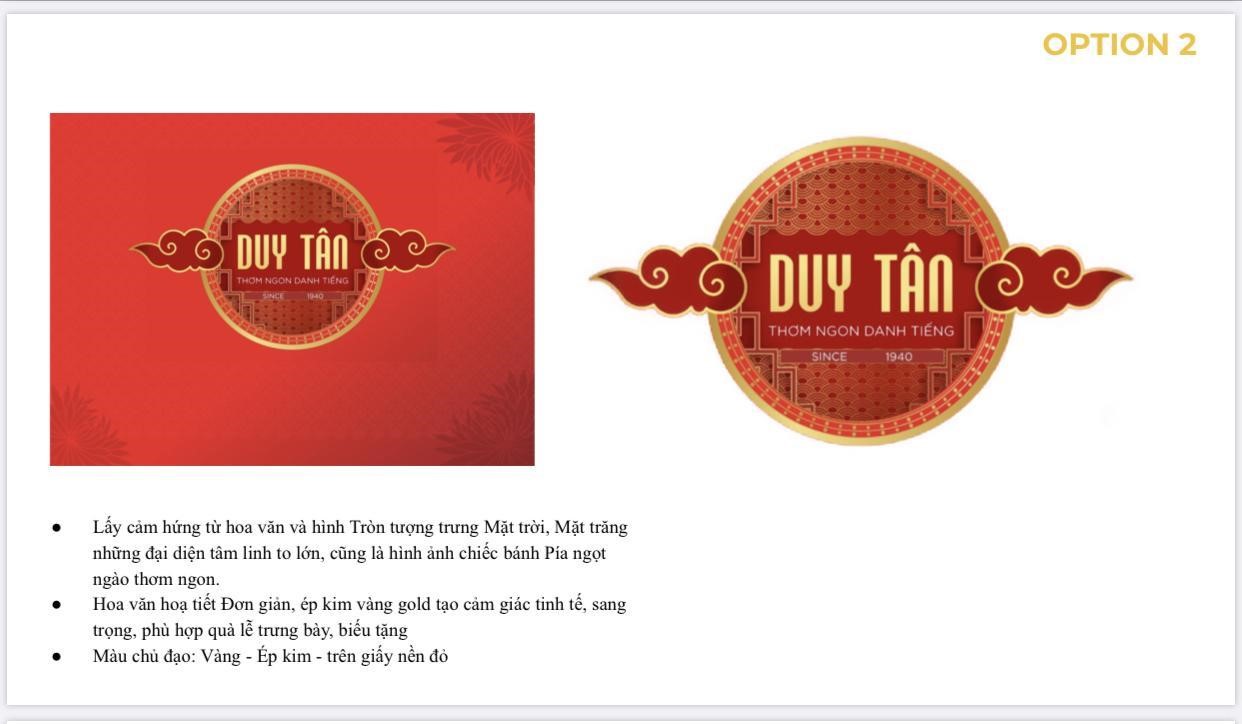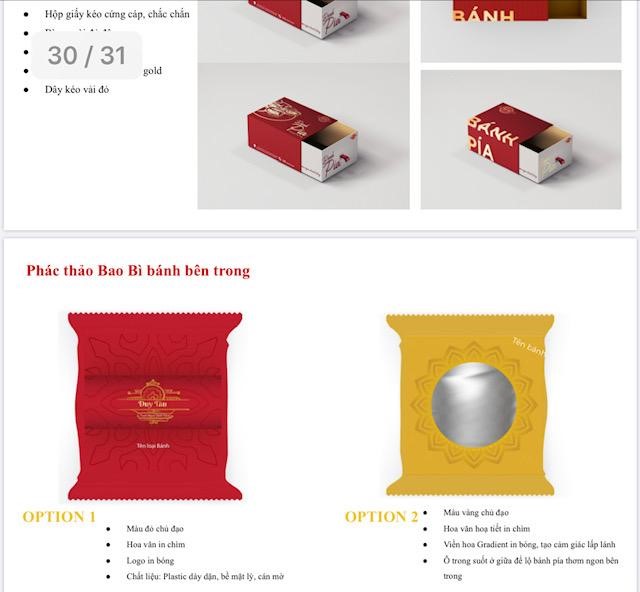Assess the current situation and propose solutions to convey human values into OCOP products in building new rural areas in ethnic minority areas in the South of Viet Nam
In the Southern region, the ethnic minorities with the largest population are mainly the Chinese, the Khmer and the Cham. These ethnic groups have produced many local products such as food, beverages, herbs, handicrafts, decoration, garments, tourism services, sales among others. But not many of them are participating in the One Commune One Product (OCOP) program except for those related to food products such as pia cake, Chinese sausage (lạp xưởng), Cham tung-lo-mo (beef sausage, lạp xưởng bò) and so on. Most of the times these food products only meet the standards from 3 to 4 stars, not yet able to be upgraded to 5 stars as expected by producers and local authorities. The reason is the lack of consultation of experts related to the creation of product specificity, such as locality, ethnic culture, humanity… conveyed in the product; although these products are of the required quality. Therefore, the goal of the OCOP program is to promote the rural economy, promote the specific economic development potential of the locality and specific ethnic groups, create jobs, increase incomes for people, expand the market for products… As a result, research to increase the value of OCOP products of ethnic minorities in Vietnam in general and in the Southern region in particular, especially the human value conveyed into the product to aim at specificity and to create uniqueness in the consumer market is a matter of current necessity. The incorporation of humanistic values in OCOP products is also one of the important criteria to achieve the 5-star standard of the product.
1. Nature of research
The survey shows that the human values of ethnic minorities are expressed in many aspects, and each ethnic group has the characteristics of different humanistic values. Specifically, the Khmer people in the South have a spiritual life that is influenced by Theravada Buddhism. In their lives, their humanistic values are integrated into the moral values of Buddhism, which uphold the integrity of people in all living situations, including the creation of material wealth or all kinds of products. The Cham people here are mostly Muslims. In their lives, they comply with the teachings of Islam, such as focusing on the three basic elements of Halal, Haram and Mashbool. They also have many important creative ideas in economic activities such as creating Halal beef sausage called tung-lo-mo with distinctive taste, which is one of their signature dishes. The Chinese people in the South have a tradition of business, so they have created traditional values imbued with the humanistic values of the ethnic group. This factor has always been maintained, preserved, developed and enriched by new factors created by the Chinese community itself in the process of adapting to the natural and social conditions in which they migrate. Therefore, they have created many unique products in their economic activities and used them for trade.
However, in the process of building OCOP products, the above ethnic groups have not focused on conveying their human values into the product to enhance the unique value of the product in the spirit of “each commune, a product” as prescribed by the state. Therefore, the research aims to develop a solution to convey human values (selectively) into OCOP products of ethnic minorities in the South, helping their OCOP products have higher value in the future.
2. Research process
The study conducted fieldwork in 3 provinces of Soc Trang, An Giang and Tra Vinh in 2020 and 2021 – where Chinese, Khmer and Cham people participate in the OCOP program. During that fieldwork, technical parameters were collected and analyzed in this study using specific methods such as:
- Participant observation (to learn and analyze the true values brought in the community’s OCOP production);
- In-depth interviews (conducting 90 in-depth interviews with local people, local officials of 3 provinces Tra Vinh, Soc Trang and An Giang to learn the limitations and difficulties in conveying human values into OCOP products);
- Questionnaire survey (implementing 858 surveys using quota sampling method, including target groups: Chinese, Khmer, and Cham households with production and business activities participating in the OCOP program).
3. Scholastic implications
Research results show that conveying human values into OCOP products of ethnic minorities such as Khmer, Hoa and Cham in the South has not been properly implemented. Although human values are symbols of ethnic culture that have the power to attract and influence customer awareness, creating a distinctive brand associated with three elements: product, culture and artifact (the cultural subject of the product). Caused by:
- The awareness of the identity and human values in the OCOP product of the subject is still limited;
- Their crafts and craft villages lack uniqueness due to following the general market; 3) The direction and companionship of the authorities and local support policies for OCOP participants and products remain inconsistent;
- OCOP products of ethnic minorities do not create uniqueness because human values are not respected and there is a lack of product stories. Therefore, the value of OCOP products of ethnic minorities in the South has not met the 5-star criteria of the state and has not become a national export product.
From the analysis results, the study proposes solutions such as:
- Promote cultural identity in conveying humanistic values into OCOP products;
- Promote traditional craft villages to create the uniqueness of products;
- Convey human values into building product stories;
- Raise subject awareness of conveying techniques and identify cultural values that need to be conveyed into OCOP products;
- Convey human values into building a product brand identity.
These solutions were proposed because, during the research, we conducted a test on the OCOP product model of Chinese, Khmer and Cham people. Our tests are approved and welcomed by the product owner, who believes that they will definitely improve the value of their OCOP products in the future.
4. Value of the research
The value of this research is to evaluate the current situation of conveying human values into OCOP products in new rural construction and propose solutions to improve the value of OCOP products in ethnic minority areas in the South, specifically including:
- Explain the perspective of human values in OCOP products, conveying humanistic values into OCOP products in ethnic minority areas;
- Learn about the experience of conveying humanistic values into OCOP products in some countries and territories around the world and the practice of conveying human values into OCOP products in Vietnam;
- Determine the current status of OCOP products and humanistic values in OCOP products in Southern ethnic minority areas;
- Analyze the influence of factors on the success and limitations of the process of conveying human values into OCOP products in current ethnic minority areas in the South of Vietnam;
- Select products to test solutions to convey humanistic values into OCOP products of ethnic minorities in the South;
- Propose feasible solutions to convey humanistic values into OCOP products of ethnic minorities in the South in the near future.
5. Images of typical products

Khmer bamboo salon products in Tra Vinh

Logo and packaging design with humanistic values for Cham products in An Giang

Logo design for pastry products of Duy Tan establishment, (Chinese) in Soc Trang

Cake packaging design for the ethnic Chinese Duy Tan facility in Soc Trang
6. Contact the group of authors, authors
Assoc. Prof. Huynh Ngoc Thu, PhD
Faculty of Anthropology, University of Social Sciences and Humanities, No. 10-12 Dinh Tien Hoang, District 1, Ho Chi Minh City
Email: hnthu76@hcmussh.edu.vn
Phone: 0903843576
VNUHCM Annual Conference 2022
